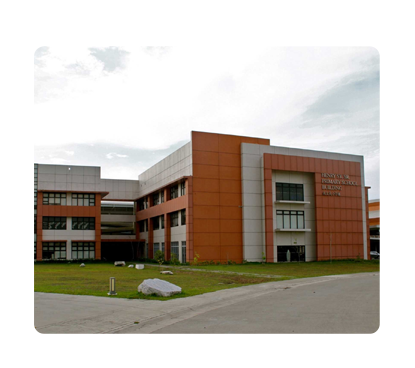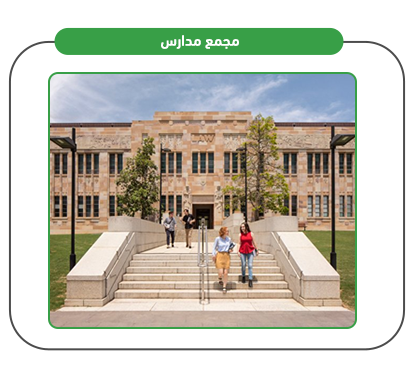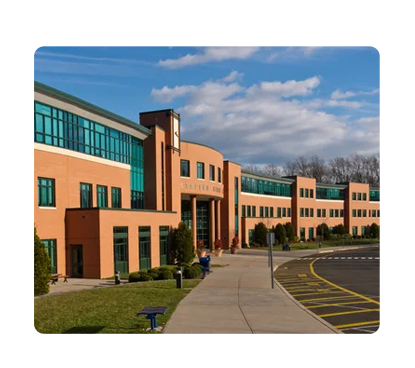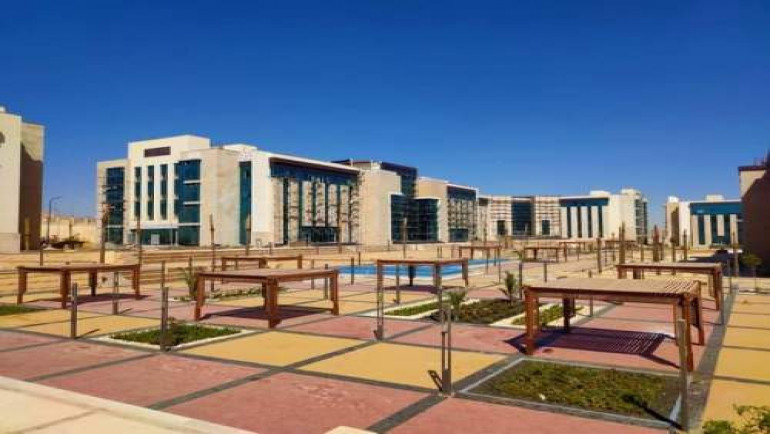Mashroo3k Economic Consulting Company offers a feasibility study for a school complex project for various educational levels, with the highest return on investment and the best payback period. This study is based on a series of in-depth studies of the size of the Yemeni market, an analysis of competitors’ strategies, and parents’ desires, all within the framework of the growth of the education sector in Yemen.

The school complex project provides educational services, as well as sports, cultural, and artistic skill development activities for boys and girls, both citizens and residents of Yemen, covering all educational levels. The school complex includes specialized classrooms and facilities, science and computer labs, audio-visual labs, a private clinic for students, and halls equipped for sports and artistic activities.
Mashroo3k Economic Consulting Company provides investors interested in investing in a school complex project for various educational levels with a set of specialized feasibility studies based on updated databases specific to the Yemeni market. This helps ensure the project’s success, achieves the highest return on investment, and provides the best payback period. This is achieved through accurate studies of the size of the Yemeni market, analysis of the strategies of local and foreign competitors, and the ability to provide competitive pricing.

Mashroo3k Economic Consulting Company is committed to ensuring that the school complex project has the best human resources, modern educational equipment, and a team of social workers capable of facilitating communication between students, teachers, and parents.
Mashroo3k Economic Consulting Company directs investors wishing to invest in a school complex project in Yemen, or develop their existing projects, to seek the advice of specialized consultants through Mashroo3k Company, to help them determine the best methods and approaches for developing school complex services and enhancing its competitive advantages.


Availability of a theater and sports fields
Availability of comprehensive laboratories and labs
Availability of an appropriate and specialized teaching team
Availability of comprehensive tools for educating and engaging students
Creative interior design
Quality in providing educational services
Full cooperation between students and faculty
Encouraging innovative and creative skills
Attention to developing curricula in educational facilities
Adopting the best teaching methods
Accomplished educational administration with extensive experience
Providing a qualified and specialized teaching and administrative staff with expertise in the field
The school is committed to using the best modern and advanced methods with students
Continuous development of educational and administrative processes
Continuous follow-up and self-evaluation of educational and administrative processes
Periodic meetings between the administrative and teaching staff and parents
Full attention to education, student welfare, and efforts to solve their problems
Executive summary
Study project services/products
Market Size Analysis
Risk Assessment
Technical study
Financial study
Organizational and administrative study

Believing in the importance of the education sector and its role in localizing the national workforce, “Mashro3k” Consulting presents key indicators of the education sector in the GCC, encouraging investment in this vital field:
The total number of students in the early childhood development stage (nurseries and kindergartens) in the GCC reached 851.5 thousand, according to the latest statistics.
The number of students in school education stages in the GCC is approximately 9.3 million (79.4% in public schools and 20.6% in private schools).
Adult education centers have around 181,247 students enrolled.
Higher education institutions accommodate 2,206,446 students.
The number of early childhood education teachers is 50,647.
The number of school education teachers is 727,904.
There are 5,806 early childhood education institutions in operation.
The number of school education institutions is 32,310.
Over the past years, GCC governments have worked to bridge the gap between education and the job market by adopting curricula that focus on vocational and technical education and promoting modern learning technologies.
The GCC countries have also increased education spending and enhanced quality to ensure that graduates meet the private sector’s labor demands.
According to the latest statistics, the percentage of national budgets allocated to education in the GCC countries is as follows:
Saudi Arabia: 18.9%
United Arab Emirates: 14.8%
Oman: 12.2%
Bahrain: 9.8%
Kuwait: 12.3%
Qatar: 10.5%
By 2023, the private education market in the GCC is expected to reach $26.2 billion.
The global education services market was valued at $2,882.52 billion by the end of 2021.
Experts estimate that the market will reach $3,191.79 billion by the end of 2022, achieving a compound annual growth rate (CAGR) of 10.7%.
By 2026, the market is projected to grow to $4,623.90 billion, with a CAGR of 9.7% during the forecast period.

By 2030, the global value of education as an industry will reach US$10 trillion.
By 2024, the value of online education worldwide will reach US$247.46 billion.
The AI education market will expand at a compound annual growth rate of 36% from 2022 to 2030.
In 2000, the number of students worldwide was approximately 657 million, and this number increased to 739 million in 2019.
In 2000, the number of secondary school students was approximately 452 million, and this number increased to 601 million in 2019.

Availability of a theater and sports fields
Availability of comprehensive laboratories and labs
Availability of an appropriate and specialized teaching team
Availability of comprehensive tools for educating and engaging students
Creative interior design
Quality in providing educational services
Full cooperation between students and faculty
Encouraging innovative and creative skills
Attention to developing curricula in educational facilities
Adopting the best teaching methods
Accomplished educational administration with extensive experience
Providing a qualified and specialized teaching and administrative staff with expertise in the field
The school is committed to using the best modern and advanced methods with students
Continuous development of educational and administrative processes
Continuous follow-up and self-evaluation of educational and administrative processes
Periodic meetings between the administrative and teaching staff and parents
Full attention to education, student welfare, and efforts to solve their problems
Executive summary
Study project services/products
Market Size Analysis
Risk Assessment
Technical study
Financial study
Organizational and administrative study

Believing in the importance of the education sector and its role in localizing the national workforce, “Mashro3k” Consulting presents key indicators of the education sector in the GCC, encouraging investment in this vital field:
The total number of students in the early childhood development stage (nurseries and kindergartens) in the GCC reached 851.5 thousand, according to the latest statistics.
The number of students in school education stages in the GCC is approximately 9.3 million (79.4% in public schools and 20.6% in private schools).
Adult education centers have around 181,247 students enrolled.
Higher education institutions accommodate 2,206,446 students.
The number of early childhood education teachers is 50,647.
The number of school education teachers is 727,904.
There are 5,806 early childhood education institutions in operation.
The number of school education institutions is 32,310.
Over the past years, GCC governments have worked to bridge the gap between education and the job market by adopting curricula that focus on vocational and technical education and promoting modern learning technologies.
The GCC countries have also increased education spending and enhanced quality to ensure that graduates meet the private sector’s labor demands.
According to the latest statistics, the percentage of national budgets allocated to education in the GCC countries is as follows:
Saudi Arabia: 18.9%
United Arab Emirates: 14.8%
Oman: 12.2%
Bahrain: 9.8%
Kuwait: 12.3%
Qatar: 10.5%
By 2023, the private education market in the GCC is expected to reach $26.2 billion.
The global education services market was valued at $2,882.52 billion by the end of 2021.
Experts estimate that the market will reach $3,191.79 billion by the end of 2022, achieving a compound annual growth rate (CAGR) of 10.7%.
By 2026, the market is projected to grow to $4,623.90 billion, with a CAGR of 9.7% during the forecast period.

By 2030, the global value of education as an industry will reach US$10 trillion.
By 2024, the value of online education worldwide will reach US$247.46 billion.
The AI education market will expand at a compound annual growth rate of 36% from 2022 to 2030.
In 2000, the number of students worldwide was approximately 657 million, and this number increased to 739 million in 2019.
In 2000, the number of secondary school students was approximately 452 million, and this number increased to 601 million in 2019.